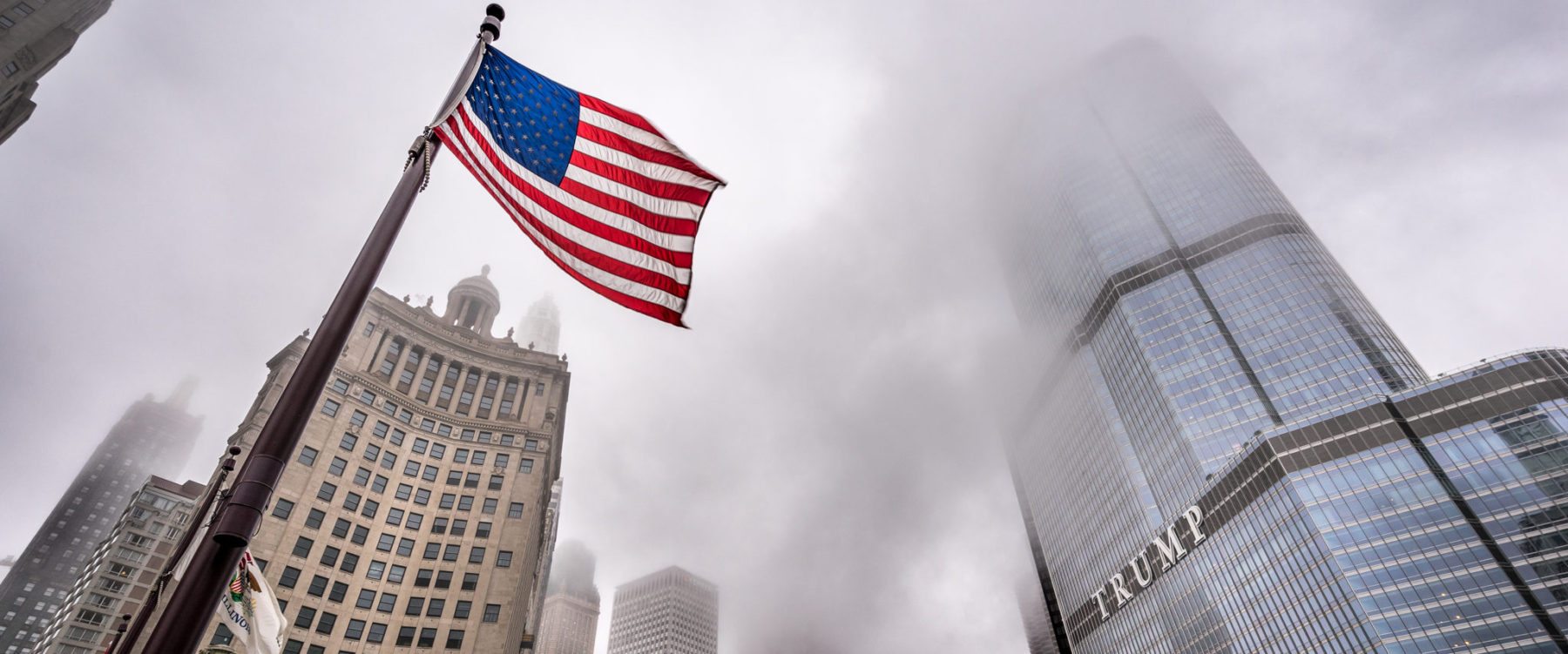A president of the past? Trump and Lewis’ Windrip
Connor Hutchinson considers whether we can compare Sinclair Lewis’ 1935 bestselling book It Can’t Happen Here, to the Trump Presidency.
Lewis’ novel depicts the rise of an anti-immigrant, racially fuelled demagogue who manages to win the hearts and minds of the American people on his hunt for the presidency. Remind you of anyone? The outlandish radicalism of Buzz Windrip converts American politics into a fascist dictatorship after he defeats Franklin .D. Roosevelt in the 1936 election. Although written during the poverty-stricken era of the Great Depression, Lewis predicts frightening similarities between the rhetoric and eccentric demeanour of a fictional authoritarian and the current president, Donald Trump.
The most interesting comparison that can be extracted from this literary classic is Buzz Windrip’s rise to the White House and how his expression of radical policies in a captivating manner helps to win him the necessary amount of votes. The anti-Buzz protagonist of the novel, journalist Doremus Jessop, attends a Windrip rally at Madison Square Gardens during the run up to Election Day and is transfixed by Windrip’s animated performance, rather than focusing on the meaning of his words. This tactical approach which concentrates on public character was one of Donald Trump’s main weapons in persuading voters to trust him in the Oval Office. Both Windrip and Trump possess the personality to captivate audiences, which works perfectly in masking their radical ideals.
Trump and Windrip seem to be perfectly linked by how they initially illustrate a utopian America
Further, Lewis expresses Windrip’s anti-Mexican agitation, commitment towards racial purity and isolationist approach towards American politics. Cries of “making America great again” appear to be a familiar undertone throughout Windrip’s presidential campaign, mirroring Trumps determination to return American jobs to American people. Windrip and Trump seem to be perfectly linked by how they initially illustrate a utopian America, only to lead it down a darker path when they reach presidency. Lewis includes Windrip’s lack of support in Congress and the deterioration of support after his promised policies seem to fade into the archives of his campaign trail. Trump can relate to this as his healthcare bill to replace Obamacare was rejected in Congress, having been one of the most integral sources of his support in the run up to the election.
It is clear that the overt aspects of Lewis’ fictional totalitarian America are far from becoming reality in the modern day, even with Trump in charge. After all, it is fiction! Windrip’s Minute Men, similar to Americanized Nazi Gestapos, will probably never be imitated in reality as the extent of social control and dictatorial support throughout America would be immensely difficult to construct. That’s considering if Americans could even enter a state of fascist ideology. Trump may hold characteristic traits, appeal to poor and angry voters, and hold similar anti-immigration policies to Buzz Windrip, but the extent to which America is controlled, punished and manipulated in this fictional regime bares little resemblance to the current Trump administration. Windrip’s governmental control of America is far too extreme to compare to Trump’s. But, when comparing the individuals, the two are scarily similar (with Windrip not having the best of haircuts either).
Lewis’ dystopian hell will most likely never come into fruition
Overall, It Can’t Happen Here should not scare the reader. I was indulged in the remarkable detail that Sinclair Lewis managed to portray and the comparisons to Trump made the novel twice as interesting. Truthfully, now is the best time to read this masterpiece, but don’t get too carried away when referring back to Trump. Lewis’ dystopian hell will most likely never come into fruition.

Comments